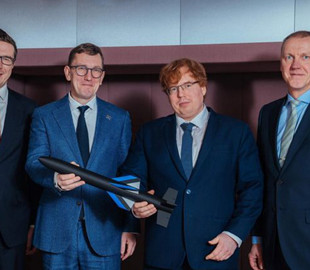
Ukraine is preparing to test a new type of miniature anti-aircraft missile Mark 1, created by the Estonian company Frankenburg Technologies. These missiles, as Interesting Engineering notes, are effective and relatively inexpensive, which makes them an ideal tool in the fight against low-flying drones, which are actively used by Russia.
The Mark 1 missiles can intercept targets at altitudes of up to 2 kilometers. They are equipped with artificial intelligence (AI) systems that provide high accuracy of guidance. The main target of these missiles is the Shahed-131 and Shahed-136 drones, which often attack Ukrainian critical infrastructure and civilian objects.
Tests of the new missile systems are scheduled for this month in Ukraine. In case of successful testing, Kyiv may decide on large-scale production of the Mark 1 directly in the country.
The first stages of production involve the release of several dozen missiles per week. By the third quarter of 2025, this figure is planned to increase to hundreds of units.
Frankenburg Technologies is actively investing in the development of its technologies. The company has already announced an investment of 50 million euros in the creation of low-cost rocket engines in the UK.
The increasing intensity of drone attacks from Russia highlights the need for such innovative solutions. In November 2024, Russia deployed 2,576 Shahed drones, a 27% increase from October.
The Mark 1 could be an effective response to this threat, helping to protect Ukraine's critical infrastructure and civilian lives.
The testing of miniature Mark 1 missiles is not only a step towards strengthening Ukraine's defense capabilities, but also an opportunity to create its own production facilities to provide the front with modern weapons.
Given the growing number of drone attacks, systems like the Mark 1 could become a key element in protecting Ukrainian skies.

